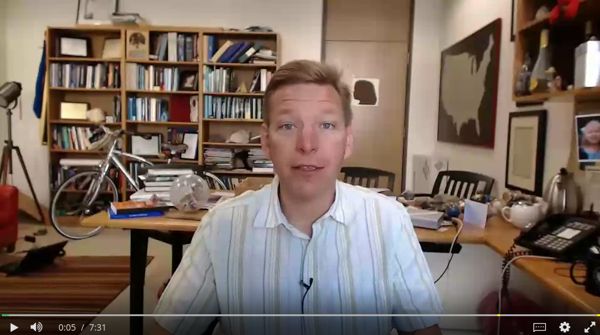
Je viens de finir ce mooc. Quelle claque. On est à la fois sur une démarche scientifique et un souci d’être abordable. Le professeur est passionnant. Les vidéos ne sont pas trop longues ni trop courtes. Le tableau est intelligemment utilisé. Les tests sont accessibles en candidat libre. Les sous-titres sont plus que corrects.
J’aurai aimé avoir d’autres semaines avec les actualités récentes des robots sur Mars et du JWST. Mais c’était déjà génial.
Bref, un énorme plaisir. Je ne peux que vous conseiller de le faire.
This mooc is designed as a broad overview of how scientists approach the study of the solar system. The class is divided into 4 distinct topics, each designed to understand one critical question in detail. As we will find (and as scientists find everyday), none of these detailed questions can be answered without understanding a wide variety of other topics within the solar system. While we focus on only these 4 questions, we will cover nearly the entirety of modern planetary science. The 4 key questions are:
Where should we look for water on Mars?
Understanding the history and current presence of water on Mars has been a human obsession for centuries. In this unit we will explore Martian history from the birth of the solar system to the present, the way that water behaves at the temperatures and pressure on Mars, the history of Martian exploration, how to think about geology on Mars, and much more. [4 weeks]
What is inside of of giant planet?
Giant planets dominate our solar system and many others throughout our galaxy. What is inside these things? We will explore this question from the standpoint of fundamental physics, of our ideas about solar system formation, and from insights gained from spacecraft. With the discovery of giant planets around other stars, we can now even begin to compare our planets to those outside. [3 weeks]
How do we use the smallest bodies to answer the biggest questions ?
The small bodies – asteroids, comets, dwarf planets – contain some of the most important clues to understanding how the solar system formed and evolved. We will learn how scientists are studying these and what we have discerned so far. And we’ll talk about Planet Nine. Because Planet Nine is real, people. [3 weeks]
Where should we look for life outside of Earth ?
We will try to understand some of the fundamental science needed for understanding where to look for life in our solar system and beyond. [3 weeks]